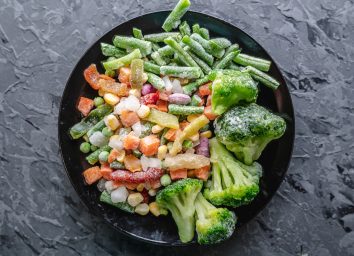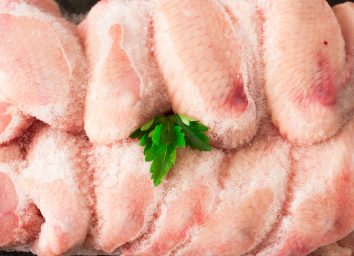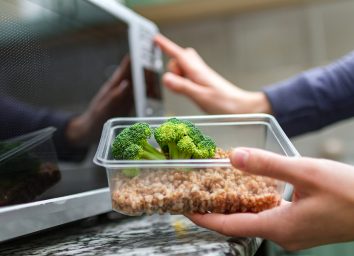13 Foods You Should Never Put in Your Freezer
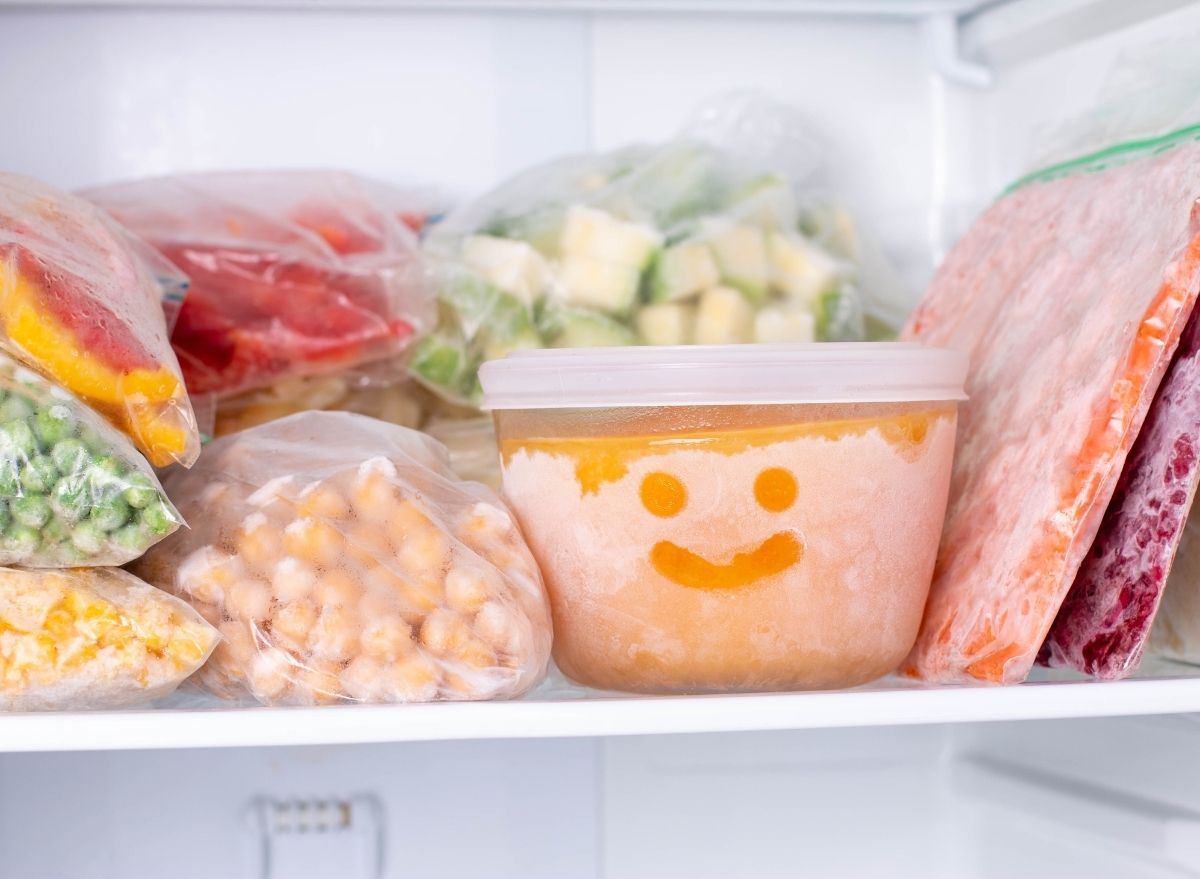
Not all of your grocery goodies are freezer-friendly. So while we applaud you for choosing to prevent food waste, proceed with caution. Some things look and taste a lot different coming out of the freezer than they do going in, which can be less than tasty and even dangerous.
Don't learn from your own mistakes—learn from our list! Keep these items elsewhere the next time you're unloading bags of groceries, and thank us later. Here are the foods you shouldn't freeze, no matter the circumstances. Plus, check out the 20 Surprising Foods You Don't Need to Put in the Refrigerator.
Eggs
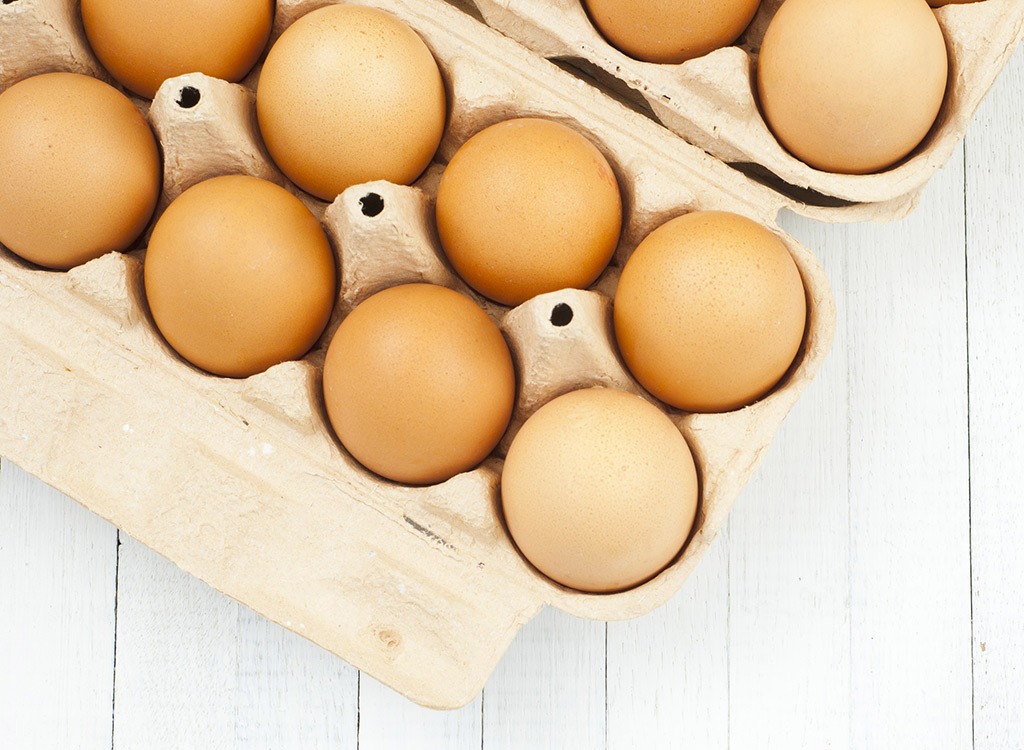
Don't ruin perfectly good eggs by sticking them in the freezer. Although it's perfectly fine to store a whisked egg in the freezer, the water in a hard-boiled one will expand enough to crack it, welcoming bacteria inside. And if it doesn't crack, the whites will turn rubbery anyway, which is one of the reasons why freezing an egg-white-based frosting isn't a good idea. Keep any egg-based sauces, like meringue, custard, and mayo, out of there as well if you want them to maintain their texture.
Dairy Products
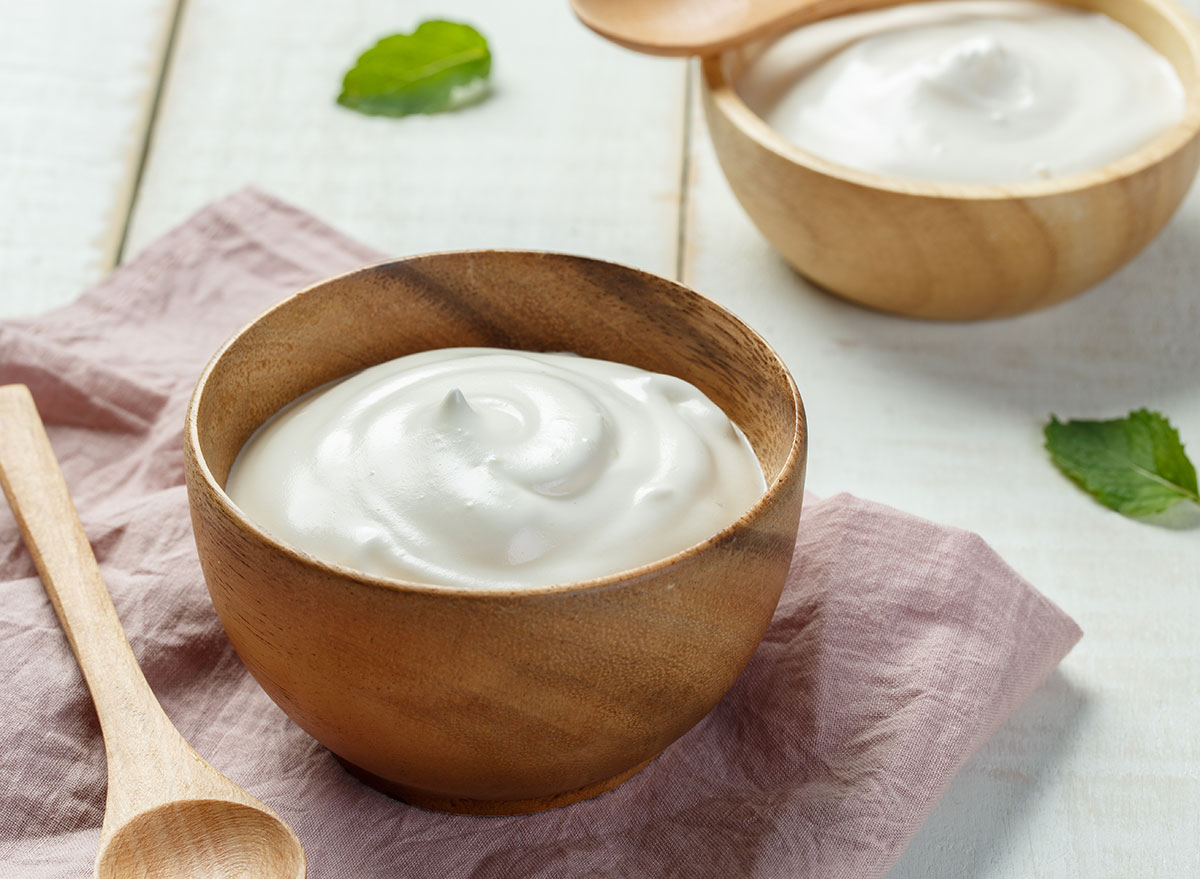
Got milk? You won't have it anymore if you pop it in the freezer. Instead, you'll have a nasty, curdled mess. And that's not the only dairy product you should quit cooling. Not only will cream cheese, cottage cheese, and sour cream all separate once frozen, but any cheese will also go through a texture change. It'll become crumbly if it was hard to start with and crystallized if it was soft, so buy only as much as you need and leave it in the fridge.
If you're planning on freezing ingredients for a smoothie, only freeze your produce—berries and bananas freeze especially well. Leave the milk and yogurt in the fridge.
Fried Foods
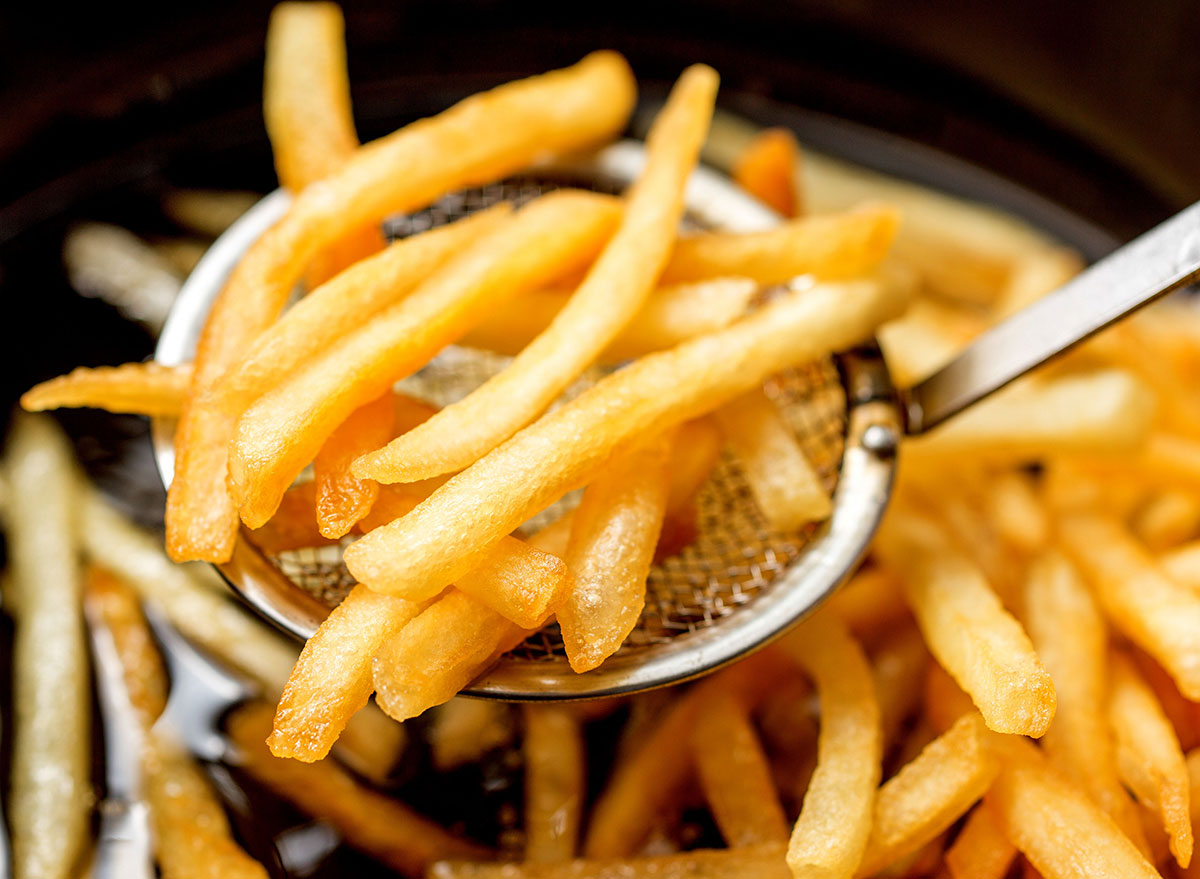
Fried foods are delicious when they're fresh—not so much when they're cold. Putting them in the freezer will make them really difficult to reheat, and the crispy outside will get soggy.
Carbonated Drinks
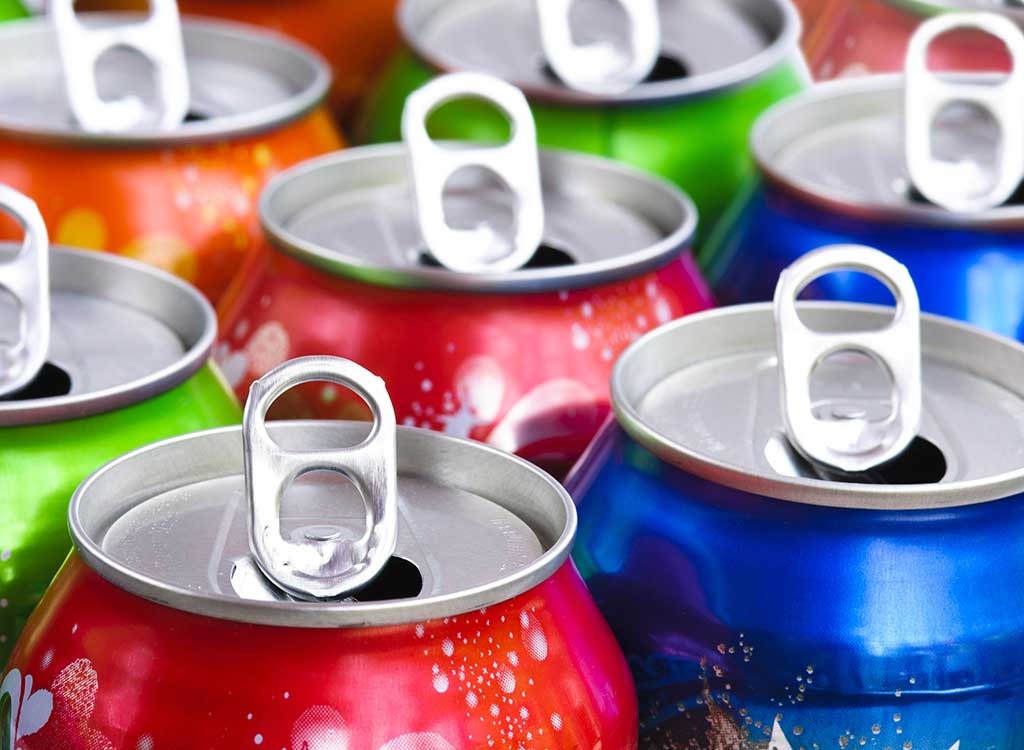
This is a mistake you'll only make once. Cooling a carbonated can in the freezer might sound refreshing, but it will only lead to exploded aluminum and sticky soda in the long run. You're better off storing those in the fridge.
Fully Cooked Pasta
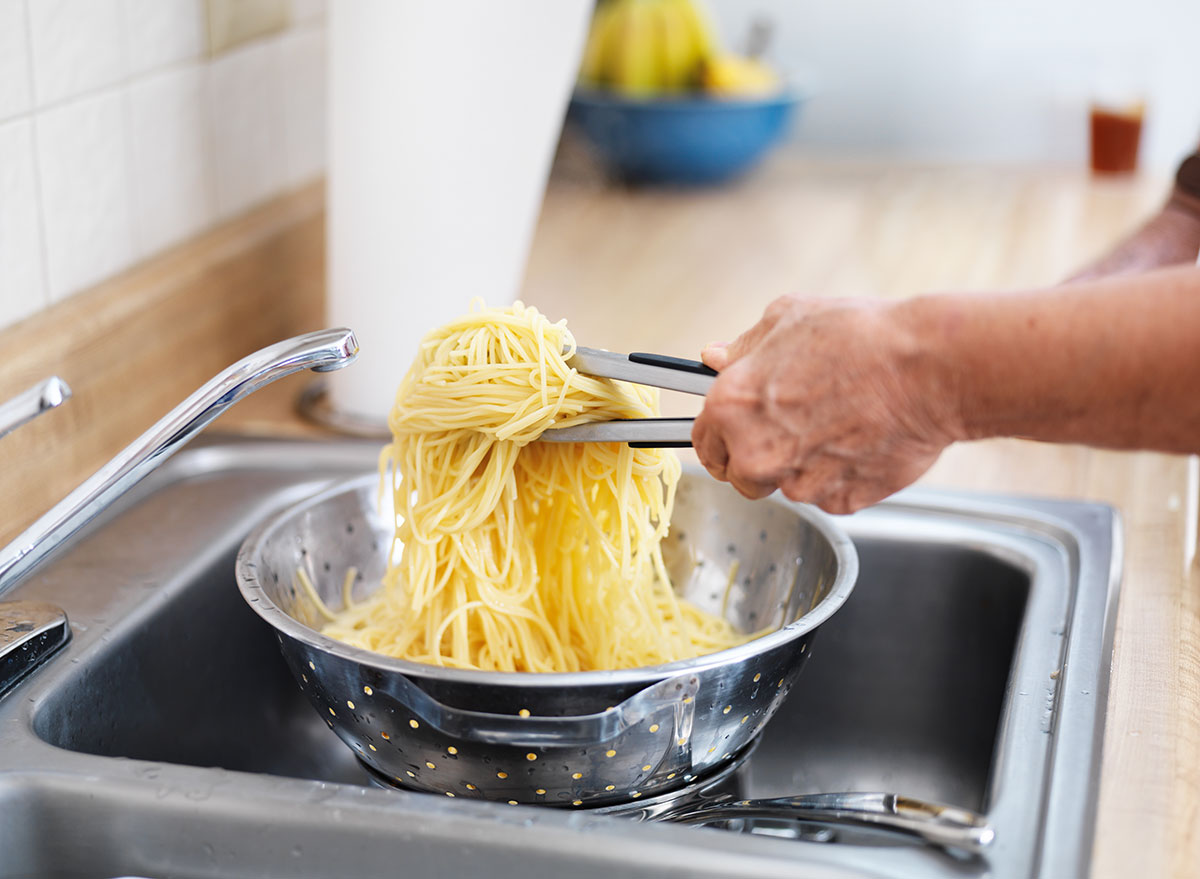
Al dente or bust! Freezing fully cooked pasta leads to mushy, limp noodles that are anything but appetizing. But if you cook pasta al dente, which means when it's still firm when bitten, you'll get better-reheating results.
Looking to freeze your sauce as well? Pour it into an ice cube tray to ensure that it melts quicker later.
Water-Rich Produce
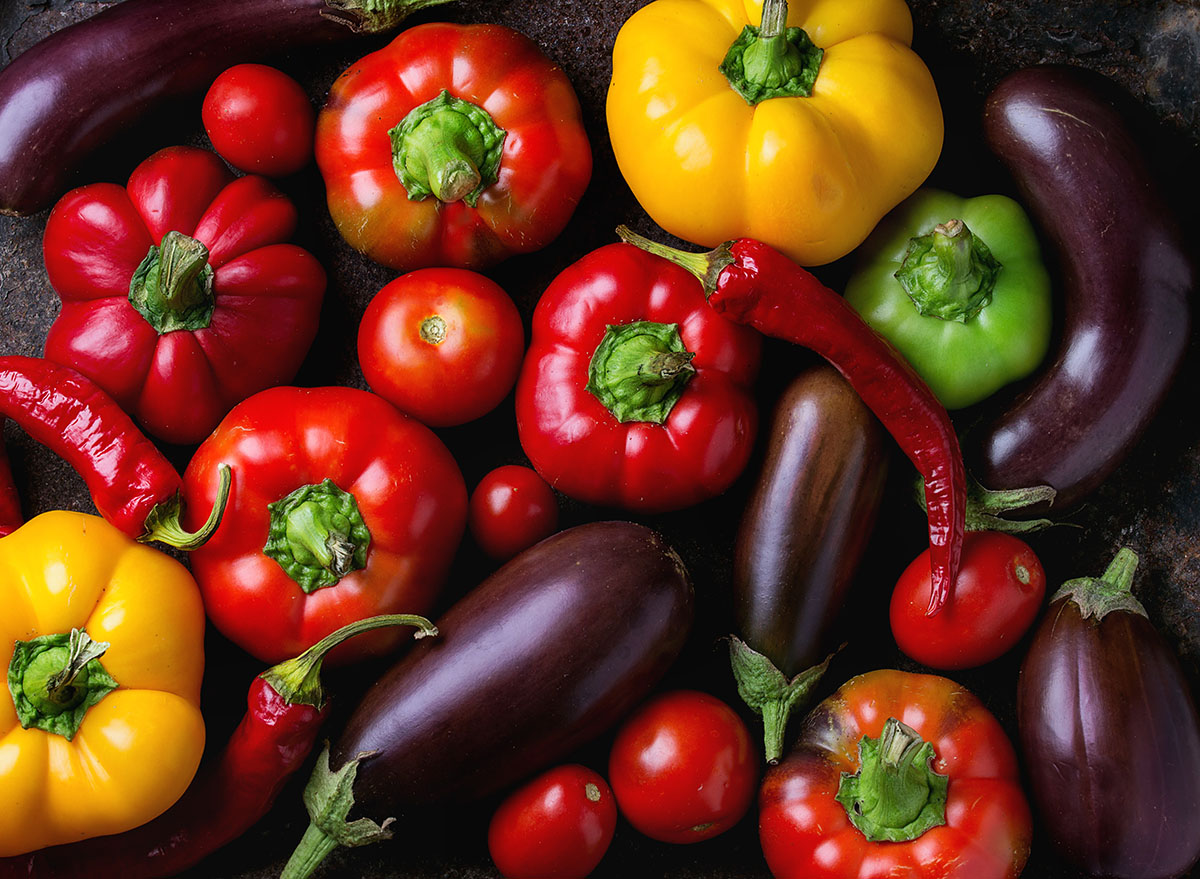
There's no better way to turn fresh produce into a limp and soggy mess than by dumping it into the freezer. Lettuce, potatoes, cucumbers, watermelon, and apples all have a high water content, leading them to ice over in the freezer. When this ice melts upon defrosting, you'll be left with some seriously unappetizing fruits and veggies.
Defrosted Meat
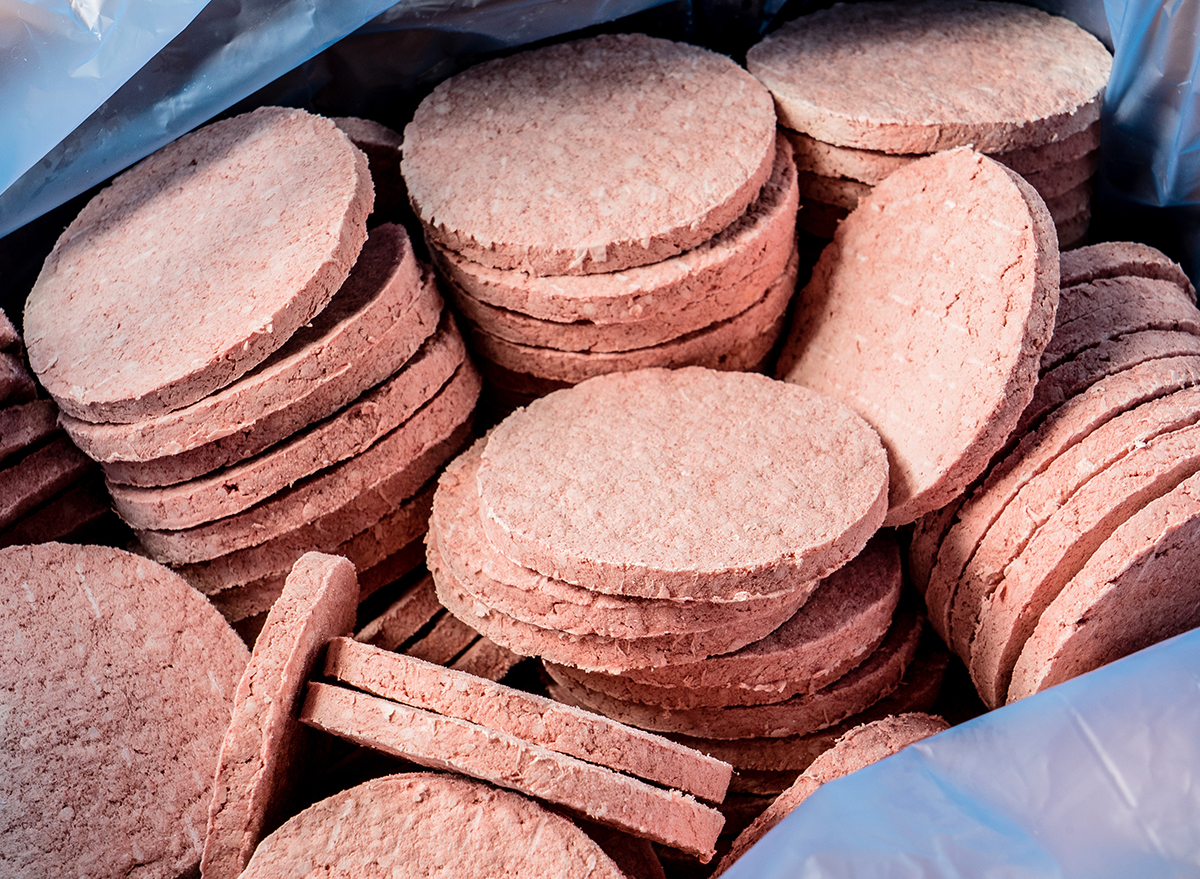
Freezing meat once is fine. It's when you thaw it and put it into the freezer again that things start getting a little sketchy. Going back and forth between the two states is an invitation for bacteria to reproduce and grow on your meat. That's the last thing you want when whipping up salmon burgers or chicken tacos, so portion out your frozen meats and only thaw them for immediate use.
RELATED: The Best & Worst Cuts of Steak—Ranked by Nutritional Benefits!
Soft Herbs

What was once a leafy green herb can transform into a brown ball of mush if left hanging out in the freezer. With a temperature change like that, the texture will be lost no matter what.
That being said, there is a way to salvage some flavor: Cover chopped herbs in oil and freeze them in an ice cube tray.
Potatoes
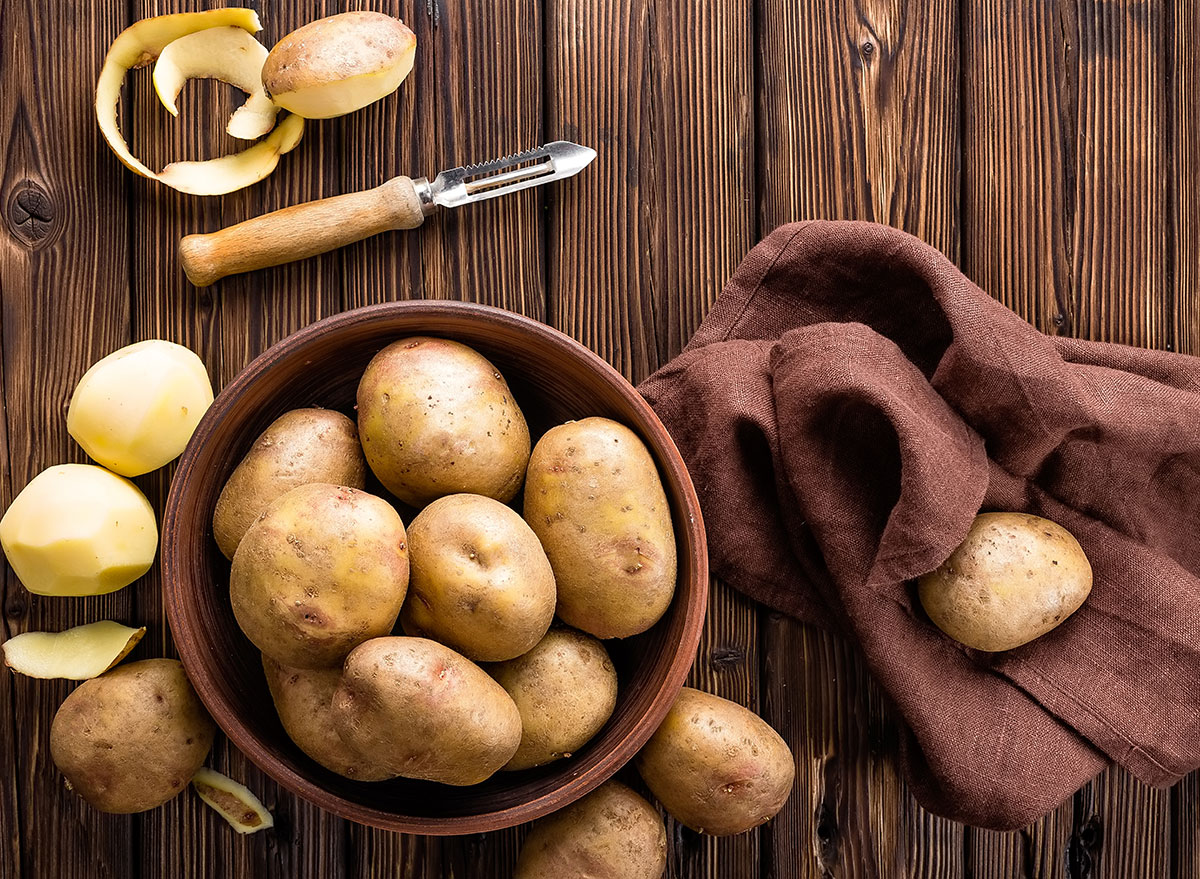
Yes, McDonald's freezes its fries before they're shipped to restaurants. No, that doesn't mean freezing potatoes at home will work the same way. As Penn State University explains, freezing potatoes will separate the starch and the potatoes' water, making them soggy.
Condiments
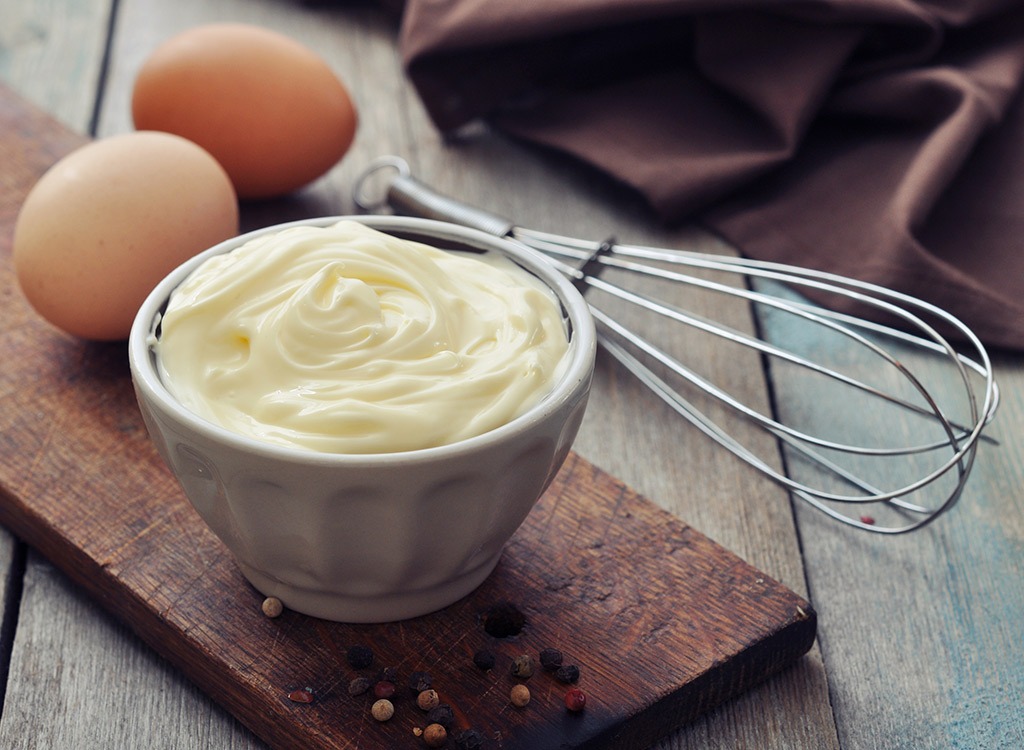
Think twice before buying a Costco-sized tub of mayo, because it won't fare well in your freezer. The ingredients will separate, and it won't be appetizing.
Jelly
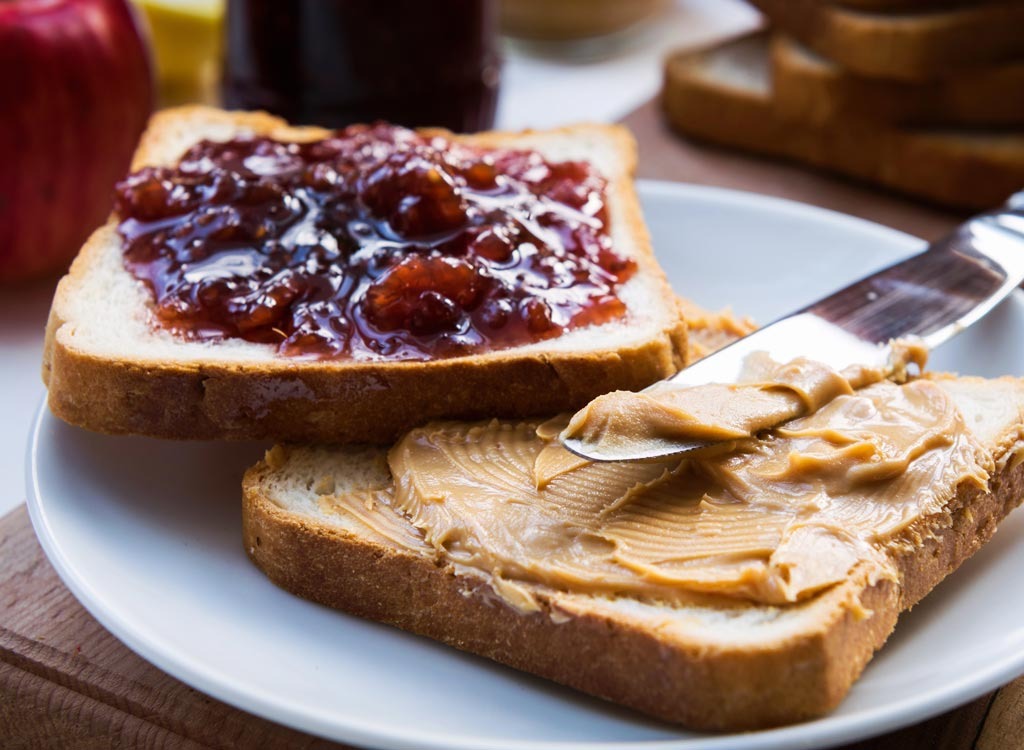
If you freeze a jar of fruit jelly, the texture won't be the same. As the National Center for Home Food Preservation at the University of Georgia explains, frozen jelly "may soak bread" when it's defrosted, and no one wants that.
Casseroles
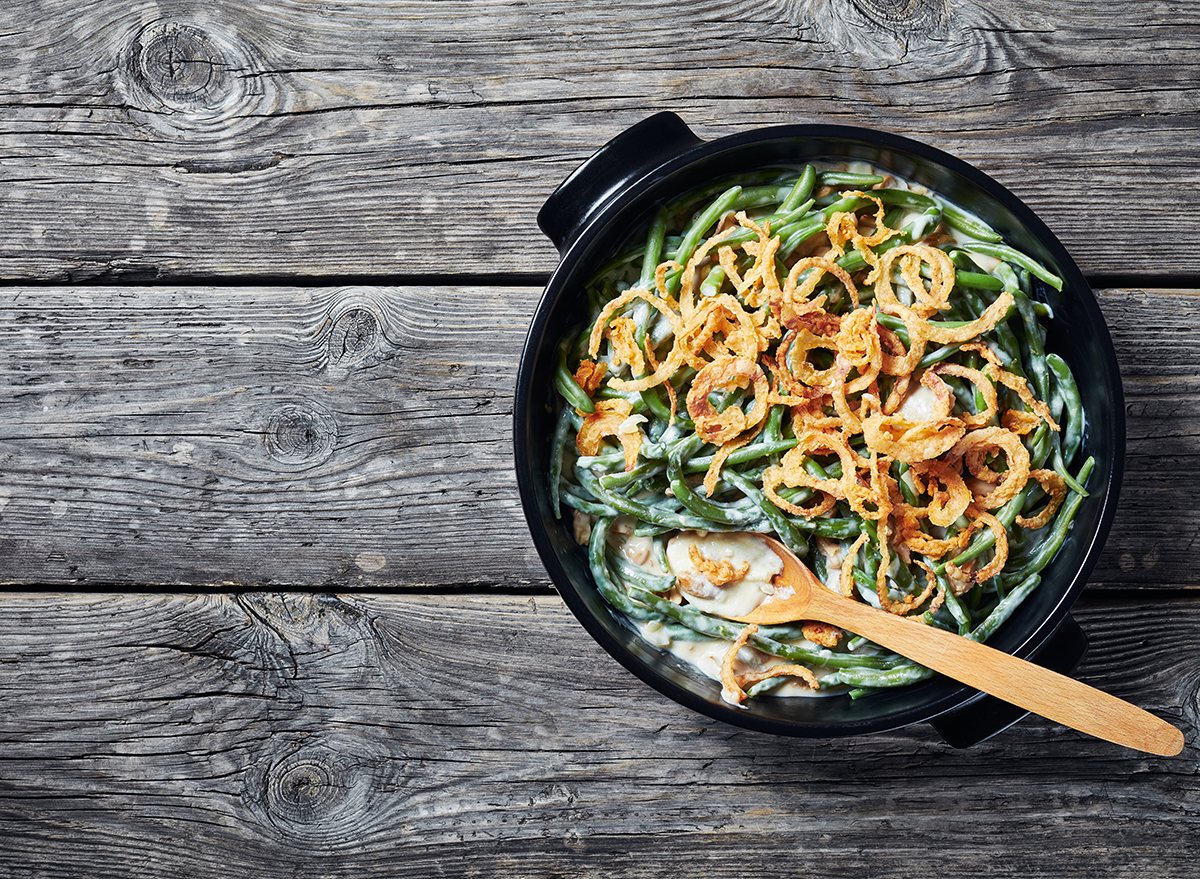
Going along with the recommendations not to freeze milk or yogurt, you'll want to stay away from freezing any dairy-based gravies or casseroles. The dairy will separate, and you'll be left with a less-than-appetizing meal.
Curry
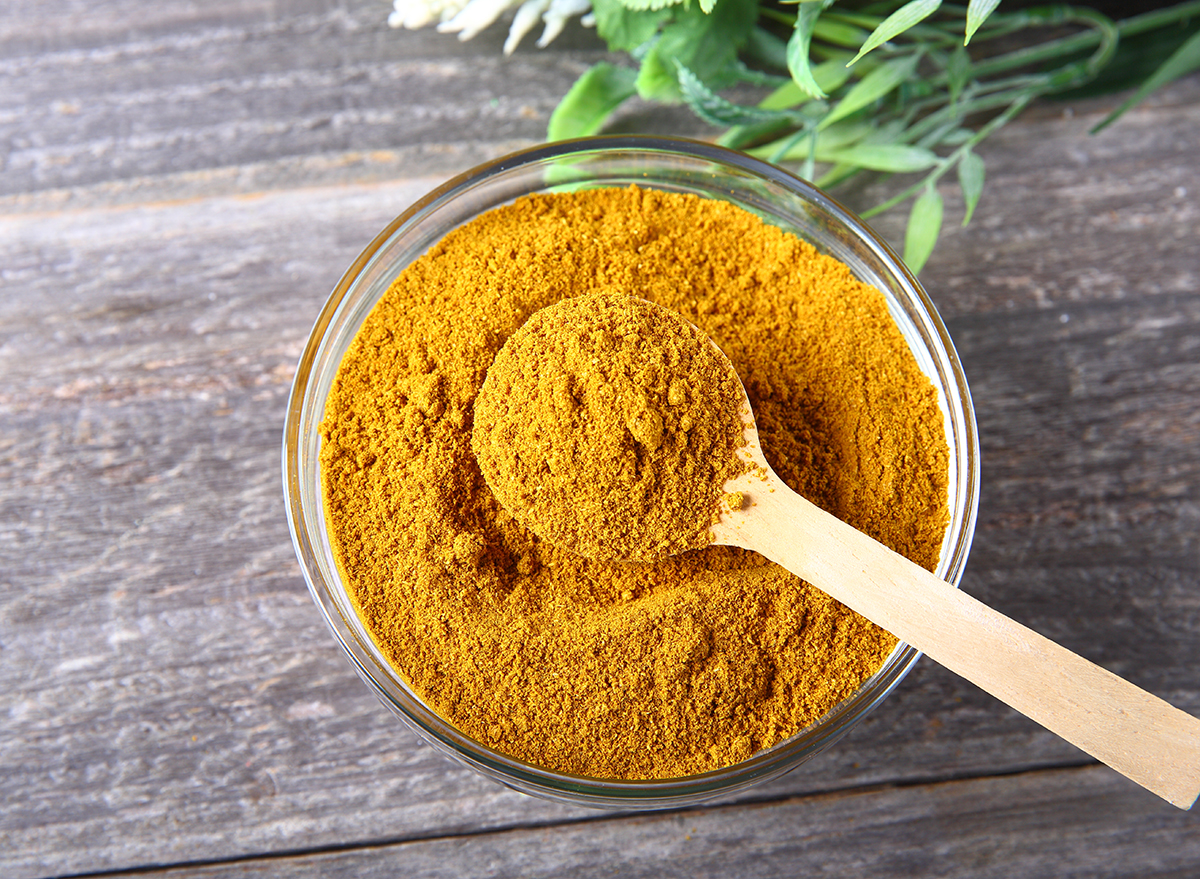
While some spices will fare OK in the microwave, others will lose their potency. The National Center for Home Food Preservation says that curry will "develop a musty off-flavor" if frozen.
Read more about your favorite foods:
23 Best and Worst Frozen Appetizers on Store Shelves
